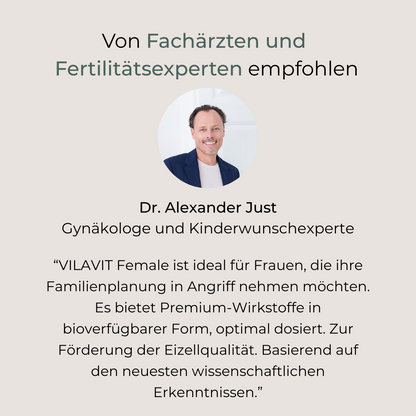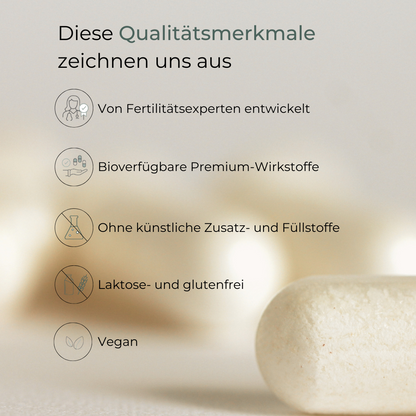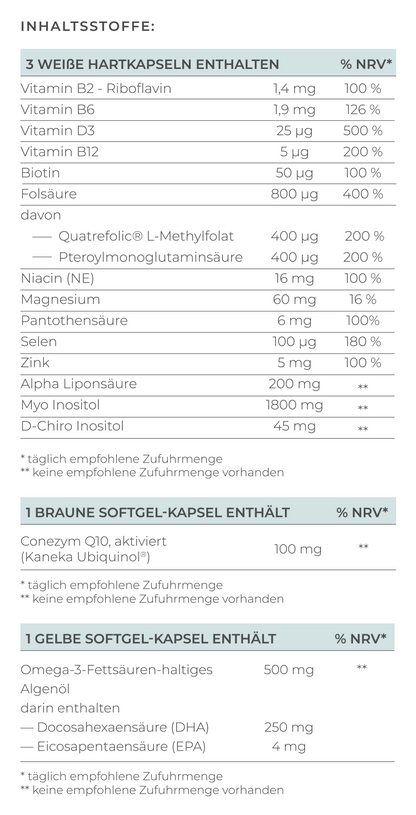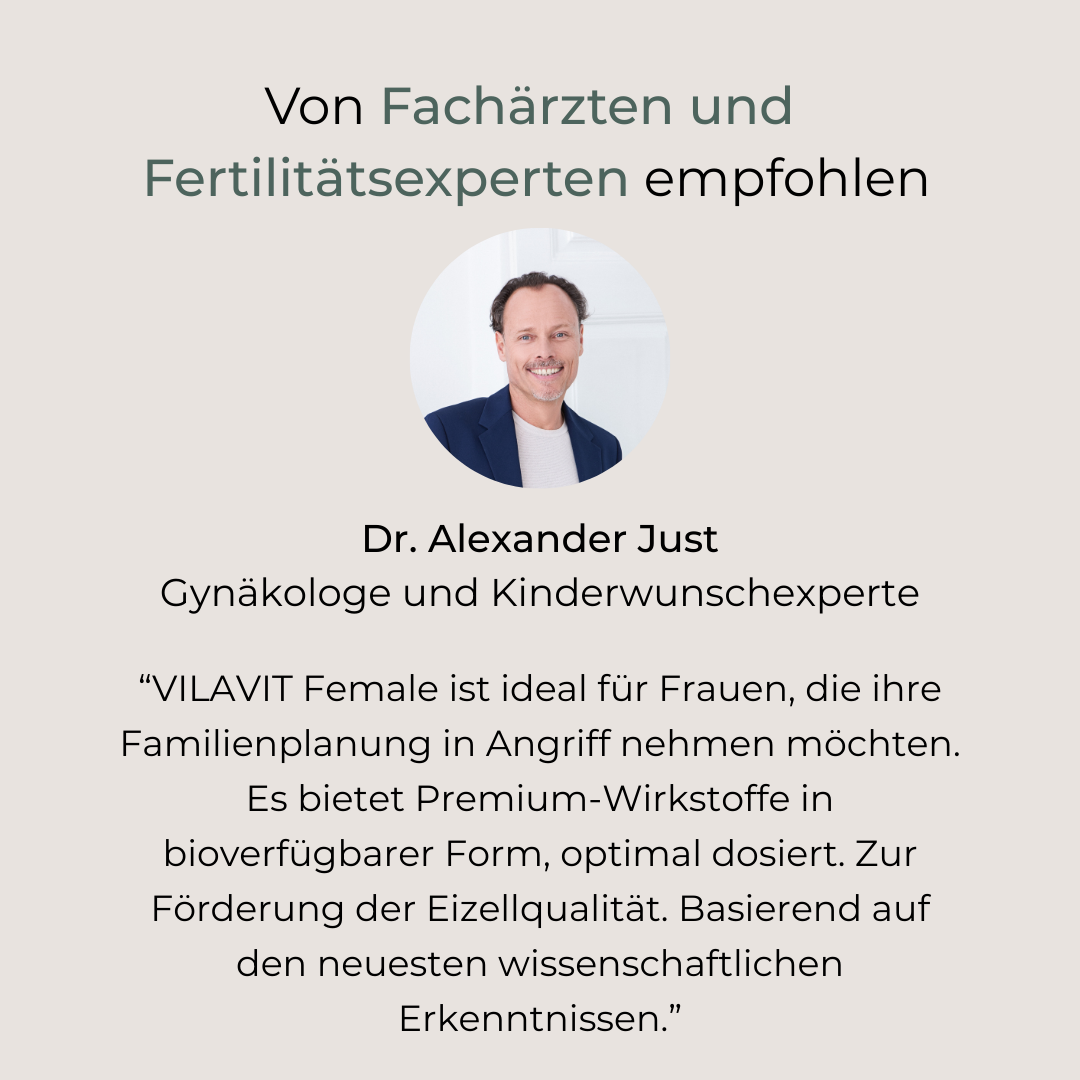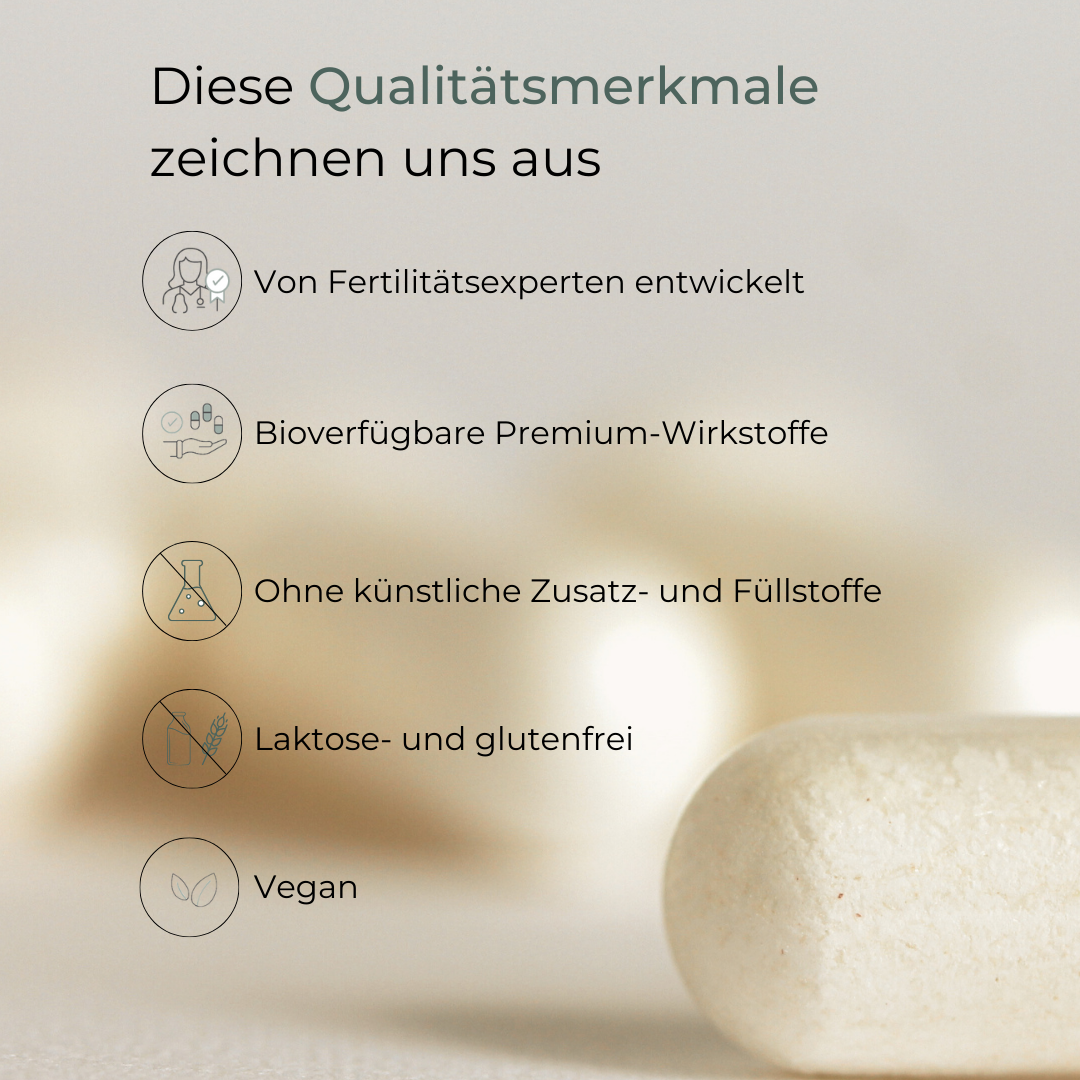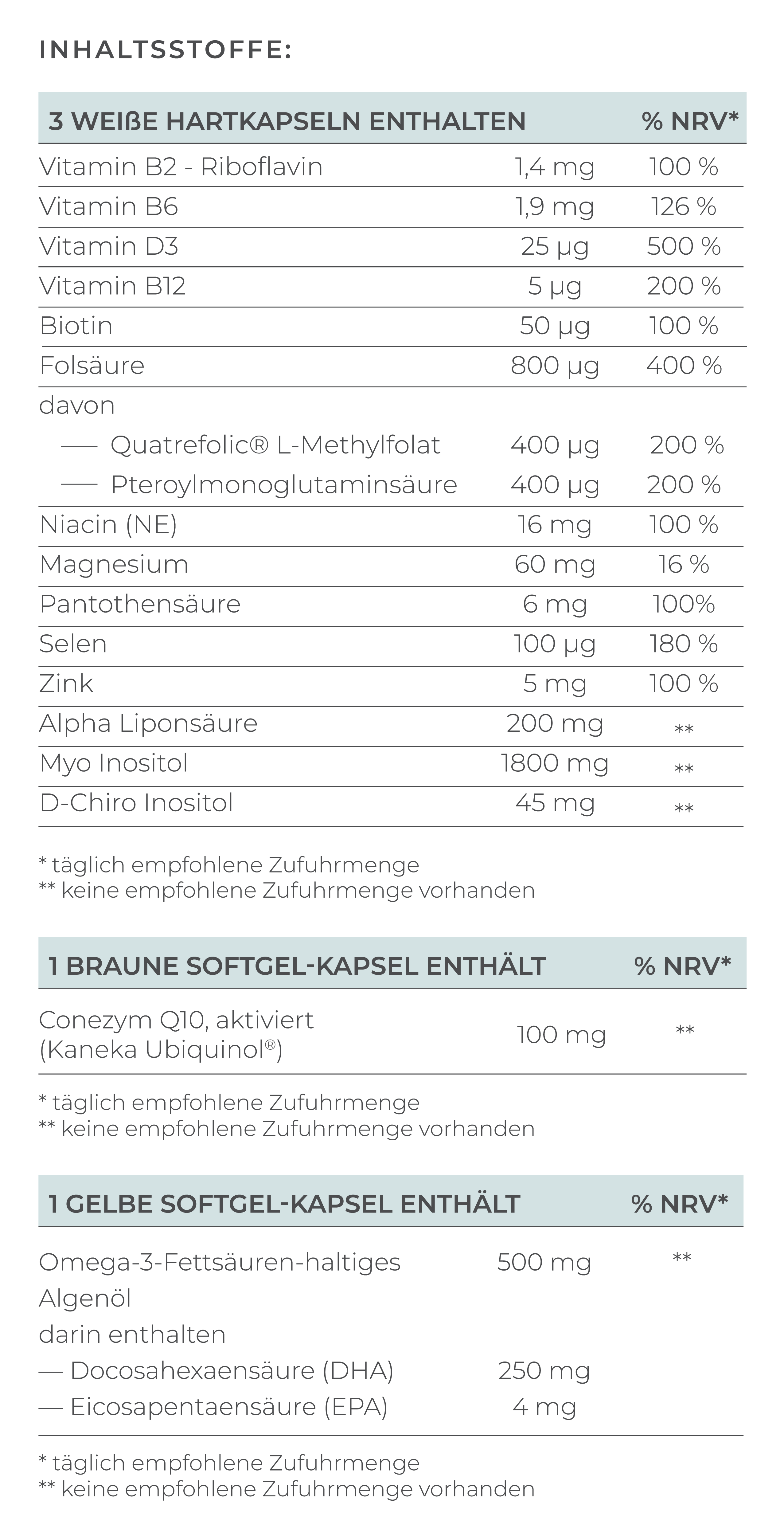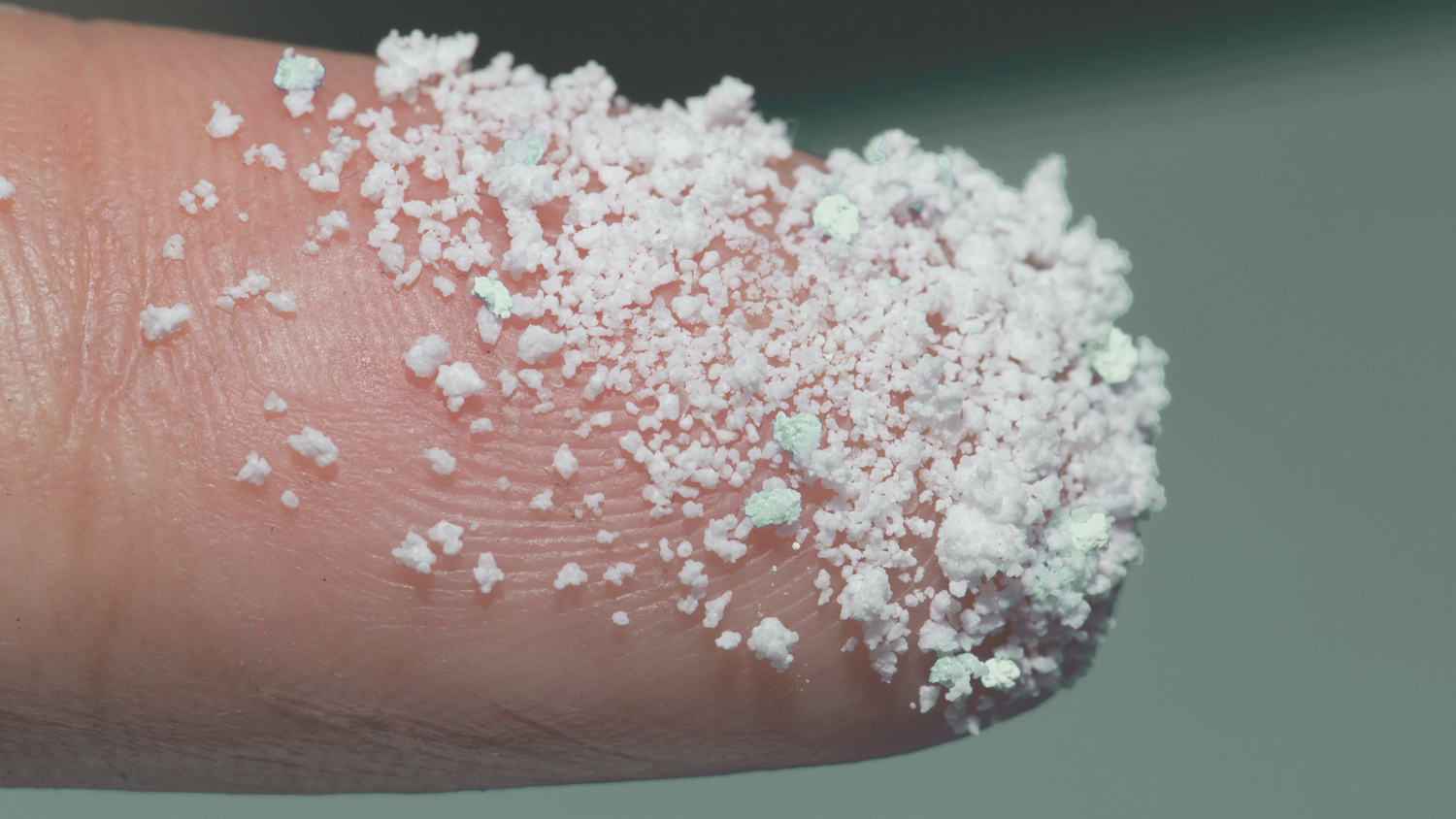Everything you need to know about the link between stress and infertility
-
Chronic stress can disrupt the release of LH and FSH, leading to delayed or absent ovulation.
-
Women with high stress levels have a lower chance of becoming pregnant.
-
Chronic stress can reduce blood flow to the uterus.
-
In men, stress can lower testosterone production, decrease sperm quality, and contribute to erectile dysfunction.
-
A healthy lifestyle and good nutrients (e.g., folic acid, omega-3, CoQ10) support both fertility and overall well-being.
egg quality. A 2023 study found that oxidative stress markers were significantly higher in follicular fluid from women experiencing greater emotional strain (Chen, 2023), which is linked to poorer egg maturation and embryo development.
Stress and Ovulation
Ovulation is necessary for natural conception, but this delicate process can be disrupted by stress. As mentioned, chronic stress can interfere with the hypothalamic-pituitary-gonadal axis, affecting LH and FSH release. Without the LH surge, ovulation does not occur ("anovulatory cycle"). A U.S. study found that women with high psychological stress had significantly more cycle irregularities or missed ovulation (Rooney, 2018).
Stress and Implantation
Even after fertilization, stress can potentially interfere with implantation—the process in which the fertilized egg attaches to the uterine lining. Studies suggest that chronic stress may reduce blood flow to the uterus and trigger inflammatory cytokines, which could negatively affect endometrial receptivity (Klonoff-Cohen, 2001). Additionally, an imbalanced hormone system may disrupt progesterone production, a hormone essential for successful implantation and early pregnancy.
In summary: Prolonged stress can negatively affect female fertility at hormonal, cellular, and behavioral levels. Integrating stress management techniques such as mindfulness, exercise, conversation, or professional counseling into daily life may be beneficial.
Stress and Male Fertility
Men are also affected by the impact of stress on fertility. Stress influences hormone production, sperm development, and sexual function—key factors for successful conception.
Stress and Testosterone Levels
Physiologically, stress leads to increased cortisol release, the so-called "stress hormone." A continuously high cortisol level can inhibit testosterone production—a hormone crucial for the formation of healthy sperm. This imbalance can have profound effects on male reproductive potential.
Stress and Sperm Quality
One study examined the connection between subjective stress and sperm parameters in over 190 men (Janevic, 2014). Results showed that men with high stress levels had significantly lower sperm concentration and motility—two essential factors for fertilization.
Stress and Erectile Dysfunction
Psychological stress can also affect sexual behavior and libido, impacting the frequency of intercourse and, therefore, the chances of conception. Many cases also involve erectile dysfunction, as the interaction between mental state, nerves, and blood vessels is disrupted. The balance between stress, hormonal regulation, and sexual function is often underestimated but plays a key role in overall male fertility.
Oxidative Stress and DNA Damage
Another key aspect involves oxidative stress: Stress promotes the formation of free radicals that can damage sperm DNA. Oxidative stress is a major cause of male infertility (Walke, 2023). Increased DNA fragmentation can not only reduce fertilization rates but also increase miscarriage risk.
Chronic stress can also lead to reduced male fertility—affecting hormone balance, cellular integrity, and sexual function. Managing stress is crucial not only for general well-being but also for reproductive health. Conscious stress management, lifestyle adjustments, and medical evaluation are recommended to support long-term fertility.
Coping with Stress and Optimizing Fertility
The good news: There are numerous ways to reduce the negative effects of stress on fertility. Studies show that relaxation techniques such as meditation, yoga, progressive muscle relaxation, and breathing exercises can lower stress levels and positively influence hormonal balance. A randomized controlled study (Domar, 2011) found that women who participated in an eight-week mind-body program had significantly higher pregnancy rates compared to the control group without psychological support.
Lifestyle plays a crucial role as well: Adequate sleep, regular exercise, mindful use of digital devices, and a balanced diet can help reduce stress and restore physical balance. The intake of micronutrients important for hormone production, egg maturation, and sperm quality—such as folic acid, zinc, selenium, omega-3 fatty acids, vitamin D, and coenzyme Q10—is particularly beneficial.
Finally, social support can be an important resource. Open conversations with a partner or fertility specialists can help process emotional burdens and develop new perspectives.
Conclusion: Can Stress Prevent Pregnancy?
Stress is a natural part of life—but when trying to conceive, it can become an obstacle. Ongoing emotional strain can disrupt hormonal processes in the body and, in extreme cases, contribute to infertility.
It is essential to acknowledge the impact of stress on fertility and take proactive steps to counteract it. With a combination of stress management techniques, a healthy lifestyle, and targeted nutrient intake, fertility can be improved while also strengthening overall health.
FAQ on Fertility and Stress
Can mental health affect fertility?
Yes, psychological well-being can significantly impact fertility. Chronic stress disrupts hormone regulation through the hypothalamic-pituitary-gonadal axis, which can interfere with ovulation in women or sperm production in men.
Can you get pregnant despite stress?
Yes, pregnancy is possible even under stress—especially if the stress is temporary or moderate. However, long-term stress can decrease the likelihood of conception. A meta-analysis found that psychological stress was associated with a significantly longer time to pregnancy (Domar, 2011).
Does stress negatively affect fertility treatments (IVF/ICSI)?
Yes, stress can play a role in fertility treatments, both physiologically and emotionally. Studies have shown that women under stress have an increased number of activated T-cells in their blood (Gallinelli, 2001), which significantly reduced embryo implantation rates during IVF treatment.
References
Rooney, L. & Domar, A. The relationship between stress and infertility, 2018.
Janevic et al. Effects of work and life stress on semen quality. Fertility & Sterility, 2014.









